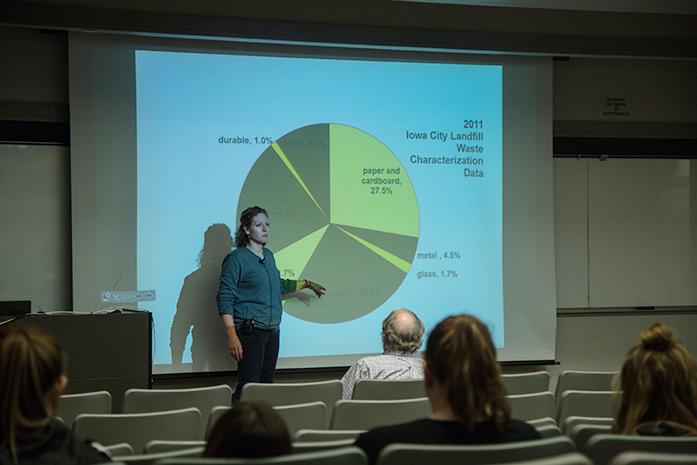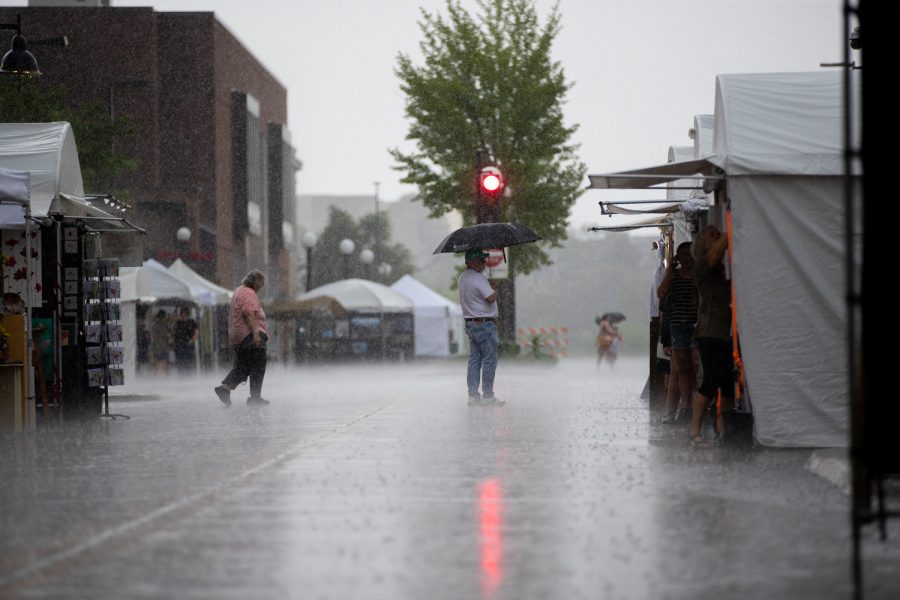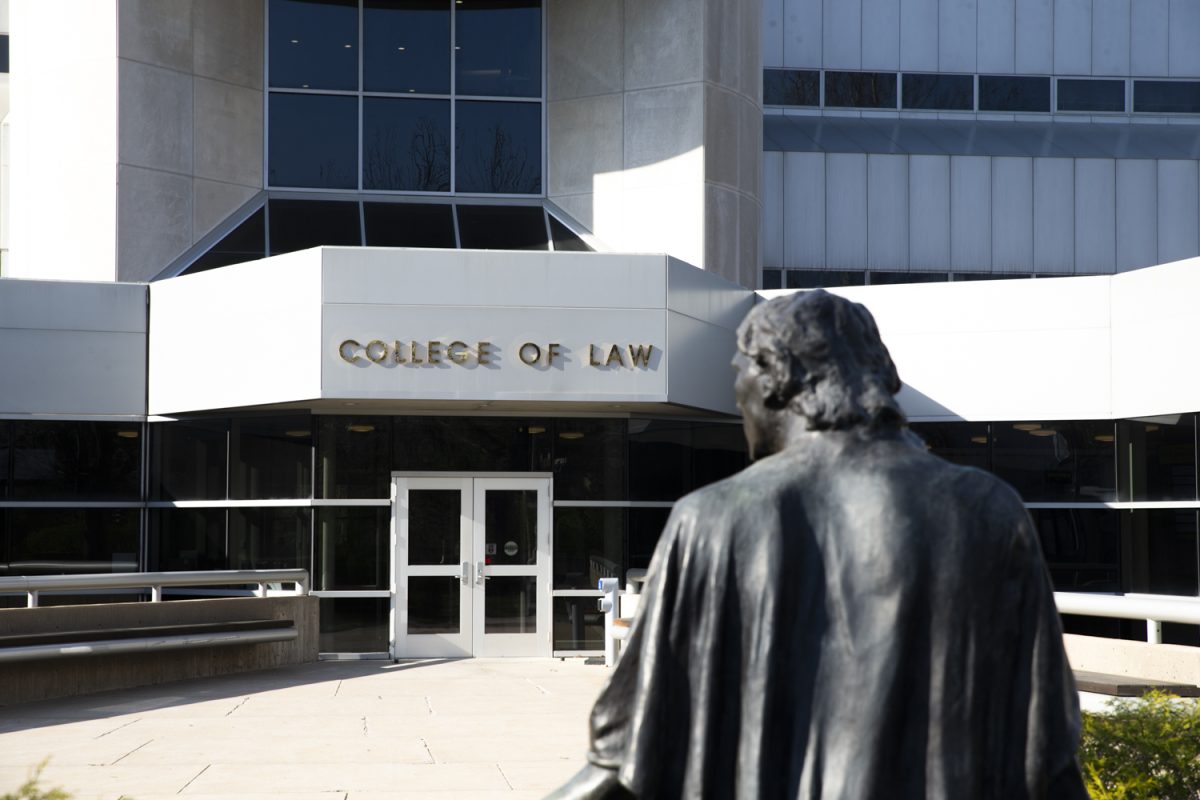By Jacob Senstad
[email protected]
Nearly a third of waste on the University of Iowa campus can be diverted by composting, according to the UI Office of Sustainability website.
This is part of the reason the office hosted a food-waste-prevention seminar titled “Waste Not, Want Not” in the Pappajohn Business Building.
Jen Jordan, the recycling coordinator for the city of Iowa City, spoke at the event to educate students on food waste and its effects on the environment.
One main point she made was that reducing food waste can easily lighten the load on landfills.
“There is a lot of misperceptions of landfills, because most people think it’s just a dump,” she said.
Landfills are expensive and require upkeep. One of the latest landfill cells at the Iowa City landfill was 13 acres in area and cost $7 million to create.
There are regulations for environmental protection, including a clay base on the landfill to protect groundwater from pollution. There is also a pipe that collects gases to prevent them from polluting the air.
On campus, efforts are being made to reduce the amount of food waste going into the landfill. The dining halls in Hillcrest and Burge have food pulpers, which prepare the food to be composted.
“The [dining halls] both have food-collection systems,” Jordan said. “There is a lot of food waste that is getting composted that used to be going into the landfill. The [UI] hospitals and dorms have a decrease in food used.”
Benjamin Hunnicut, a UI professor of health & human physiology, focused on how our economy affects the environment.
“Unlimited growth in a limited environment is impossible,” he said. “You’re going to reach the limit.”
UI senior David Lewis, an employee of the UI Sustainability Office, put the event together, then shared his tips on reducing food waste.
One was to cut down on beef, because it is worse for the environment than chicken or fish.
“It takes 100 calories of corn to create four calories of beef. There’s a massive loss there,” Lewis said. “If you could cut down one beef meal a week, that alone would be massive. It’s all about cutting down. Not about switching completely but slowly cutting down. A slow reduction should be totally encouraged.”
Lewis also noted how food waste is being eliminated on campus.
“From what we’ve seen, there were two pulpers implemented at the marketplaces;it saves food and water,” Lewis said. “It compacts [food] into blocks that are composted. Those have greatly increased composting on campus. There’s a growth in food reclamation, but no certainty in food waste.”
Students who were in attendance shared their concerns as well.
“I have noticed that people take more than they will eat and throw away their food,” UI freshman Kathryn MacDonald said. “Show people how much food they’re throwing away, and show how much is wasted. Hopefully, that can tug at their heartstrings to show them there are people who would like access to that food.”
Jordan gave a solution that anyone can all utilize at their home.
“The city government will start offering food-waste pickups at curbs,” she said.







